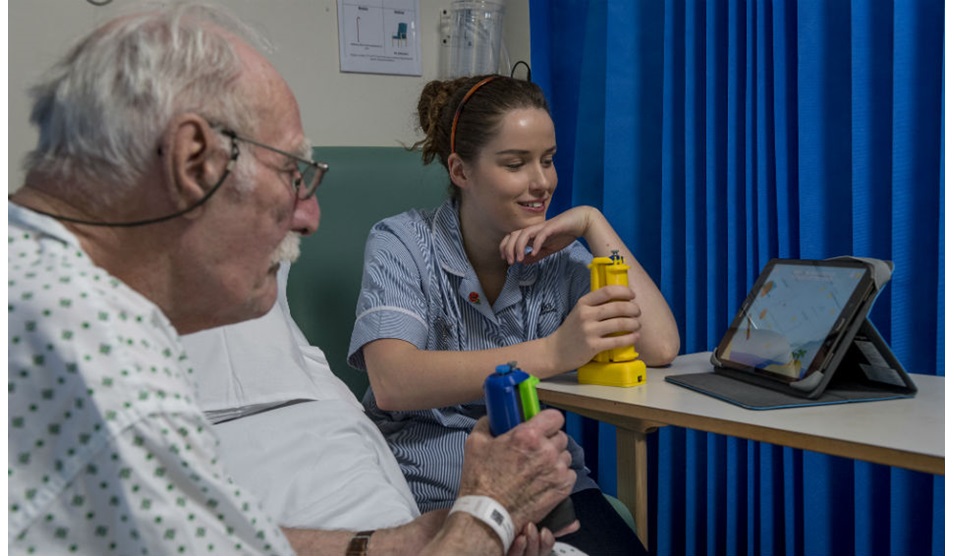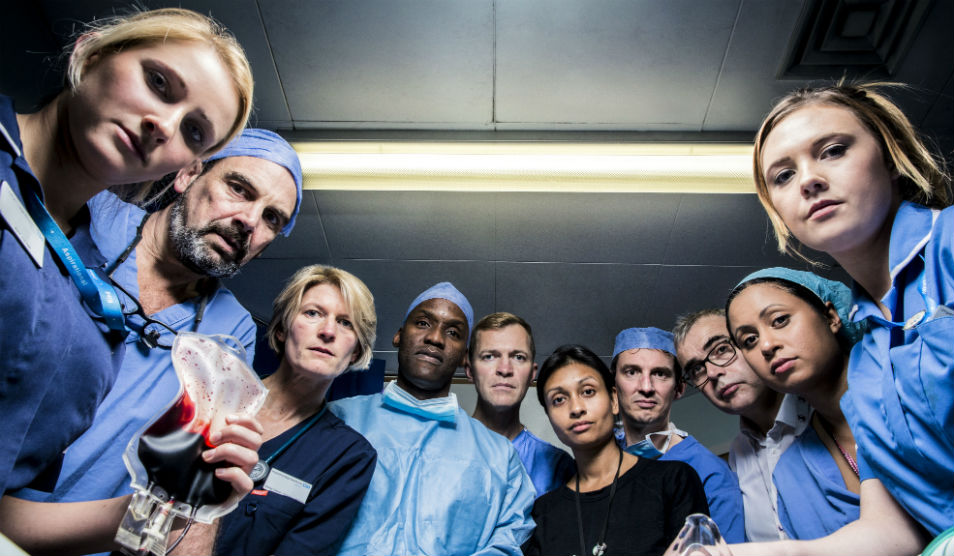Patients in north west London to benefit from stroke care improvements
Around 300 stroke patients a year are set to benefit from the expansion of an advanced emergency treatment at Charing Cross Hospital, part of Imperial College Healthcare NHS Trust.
The Hospital’s neuroradiology unit, supported by the hyper acute stroke unit, is now able to offer a procedure called mechanical thrombectomy seven days a week, 7am to 11pm, covering the vast majority of patients who it would benefit.
This makes Imperial College Healthcare one of the first NHS trusts in England to offer a seven-day service. A full 24-hour thrombectomy service will be offered to patients in north west London as soon as possible.
Developed over recent years, the treatment has been shown to reduce the likelihood of long-term brain injury, disability and loss of independence for patients who are suffering from an ischaemic stroke. This is the most common type of stroke, where the supply of blood to the brain is restricted or stopped by a clot.
Thrombectomy works by inserting a specially designed device into the blocked blood vessel, via the patient’s groin. The device, which resembles a small metal cage, is carefully guided through the blood vessel and used to retrieve the clot, allowing blood flow to resume. It has been shown to be more effective for suitable patients than traditional drug-based treatments designed to dissolve the clot.
Because of the Trust’s expertise in interventional neuroradiology, Charing Cross began to undertake thrombectomy procedures in 2013, Monday to Friday, 9am – 5pm. With growing international evidence of the procedure’s benefits, NHS England last year decided to commission the service across England. By making a £3 million investment in staff, and building on an additional £5.3 million, imaging equipment replacement programme, the Trust has been able to expand its thrombectomy service in response.
The Trust is now looking at how best to respond to an international shortage of specialist interventional neuroradiologists in order to determine how to ensure patients have access to the procedure all of the time. This includes working with Health Education England to train our own specialists, with two clinical fellows now funded in the Trust’s neuroradiology unit.
“Thrombectomy represents a significant step forward in the way we look after patients who have suffered a severe stroke,” said Dr Soma Banerjee, Clinical lead of Imperial College Healthcare’s stroke team. “With this treatment, we’re much better able to reduce the risk of long-term damage to a patient’s brain and therefore reduce the risk of long-term disability.”
“When the flow of blood to the brain is impeded during a stroke, it’s critically important to act as quickly as possible to remove the blockage. That’s why it’s such good news that we’re able to expand our thrombectomy service at Charing Cross,” added Dr Kyriakos Lobotesis, Clinical lead of Imperial College Healthcare’s interventional neuroradiology team.
The expansion of the thrombectomy service builds on the formation of the Trust’s hyper acute stroke unit in 2010, one of eight across London. Staffed by a team of 50, the unit sees more than 1,700 patients a year.
The centralisation of acute stroke units has proved a big success in terms of improving patient outcomes and reducing the length of a patient’s stay in hospital. The Trust’s specialist neurological rehabilitation service also provides intensive, tailored rehabilitation programmes for those who need extra support.





